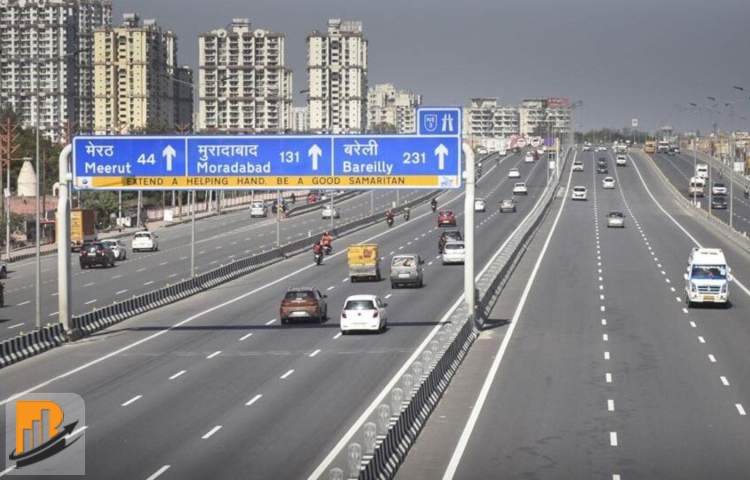Publish dateMonday 11 November 2024 - 12:55
Advancing India's Road Infrastructure with Sustainable and Innovative Approaches
Emphasizing Eco-Friendly Practices and Technological Advancements for a Resilient Future
characterized by a strong emphasis on sustainability, technological advancements,
and enhanced safety protocols. The nation's infrastructure sector is addressing
challenges with innovative solutions aimed at enabling national connectivity and
fostering economic growth.
A notable example of sustainable road construction is the initiative to use segregated
waste as an alternative construction material. This approach has already led to the
use of 80 lakh tonnes of garbage, which has contributed to reducing the height of the
Gazipur landfill in Delhi by seven meters. Such methods highlight India's adherence
to environmentally responsible infrastructure development that simultaneously
tackles waste management issues.
The recently introduced Humsafar Policy defines a strategic move to modernize
national highways, focusing on the comfort and safety of commuters. By providing
essential amenities like clean restrooms, parking spaces, rest areas, and electric
vehicle (EV) charging stations, the policy aims to align with India's evolution to
sustainable transport networks and meet the growing demand for EV infrastructure.
Road safety persists to be a top priority, with targeted efforts to study and enhance
accident-prone areas or black spots across the road network. Prompt action to repair
these spots, fused with the installation of necessary signage and traffic signals, is
integral to reducing road-related fatalities and enhancing commuter safety.
To combat pollution and support environmental health, the development of green
highways is being prioritized. Cultivating trees along roads is urged as a means to
absorb carbon dioxide, fortifying the commitment to balance infrastructure expansion
with environmental stewardship.
Strategic investments in regional projects are also driving growth and connectivity. A
noteworthy example is the allotment of Rs 809.77 crore for upgrading National
Highway 63 in Maharashtra, linking key districts and boosting trade and job
opportunities in the industrial and agricultural sectors. These projects are poised to
elicit local economies and amplify regional links.
Recent data shows that India’s infrastructure output grew by 2% year-on-year in
September, reflecting a resurgence supported by higher cement and refinery product
output. This positive trend signals a rebound in the sector and a growing demand for
construction materials, marking a revitalization of infrastructure activities.
Upcoming Highlight: Rex Global Expo & Conference 2024
The Rex Global Expo & Conference on Bitumen, Modified Bitumen & Bio-
Bitumen | Global Road Construction Conference 2024 is set to be a pivotal event
in the industry. Scheduled for December 18th, 2024, at the Rajasthan International
Centre, Jaipur, the conference will focus on sustainable practices, innovative
materials such as Bio-Bitumen and Performance Grade Bitumen, and global best
practices in road construction. Industry leaders, policymakers, and experts will
gather to share insights and collaborate on shaping the future of India's road
network.
India’s approach to road and bridge construction is evolving rapidly, with
sustainability, user-centric design, and technological innovation at the forefront.
Initiatives like the Humsafar Policy and the use of recycled materials signify a clear
dedication to developing infrastructure that meets international standards, supports
economic progress, and prioritizes environmental well-being.
For further information, contact:
Savita Kamble
Rex Fuels Management Pvt Ltd
+91 9167279047
conferences@rexfuels.com
bazareghir.ir/vdcic3ap2t1az.lit.html

